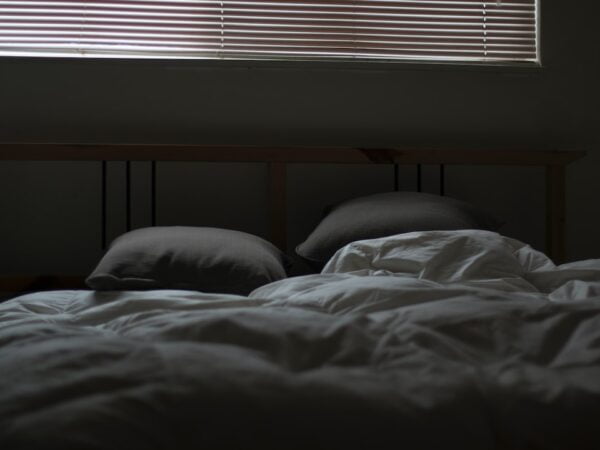
Creating a Sleep-Friendly Bedroom: Tips and Tricks for a Restful Night’s Sleep
Getting a good night’s sleep is essential for our overall health and well-being. Sleep plays a crucial role in our physical and mental health, affecting everything from our mood and productivity to our immune system and cardiovascular health. Creating a sleep-friendly bedroom is one of the most effective ways to improve the quality of our sleep.
A sleep-friendly bedroom is a space that promotes relaxation and restfulness, allowing us to easily fall asleep and stay asleep throughout the night. It is free from distractions, comfortable, and conducive to a peaceful sleep environment. By optimizing our bedroom for sleep, we can enhance the quality of our rest and wake up feeling refreshed and rejuvenated.
Key Takeaways
- A sleep-friendly bedroom is crucial for a good night’s rest.
- Assess your current sleep environment to identify any issues.
- Choose the right mattress and pillows for your comfort.
- Invest in high-quality bedding to enhance your sleep experience.
- Optimize your bedroom temperature, eliminate noise and light disturbances, and incorporate relaxing scents and sounds for a peaceful sleep.
Assess Your Current Sleep Environment
Before making any changes to your bedroom, it’s important to assess your current sleep environment. Take a look at your bedroom setup and identify any potential sleep disruptors. Is your mattress old and uncomfortable? Are there any sources of noise or light that could be disturbing your sleep? By evaluating your current setup, you can pinpoint areas that need improvement.
Choose the Right Mattress and Pillows
One of the most important factors in creating a sleep-friendly bedroom is having a comfortable mattress and pillows. Your mattress should provide adequate support for your body, ensuring proper alignment of your spine. It should also be comfortable and free from any lumps or sagging.
When choosing pillows, consider your sleeping position and personal preferences. Side sleepers may benefit from a firmer pillow to support their neck, while back or stomach sleepers may prefer a softer pillow. It’s also important to replace your pillows regularly to maintain their shape and support.
Invest in High-Quality Bedding
| Benefits of Investing in High-Quality Bedding |
|---|
| Improved Sleep Quality |
| Reduced Allergies and Asthma Symptoms |
| Increased Comfort and Relaxation |
| Longer Lifespan of Bedding |
| Enhanced Bedroom Aesthetics |
| Improved Overall Health and Well-being |
Investing in high-quality bedding can make a significant difference in the quality of your sleep. High-quality sheets, blankets, and duvet covers are not only more comfortable but also more durable. They can regulate your body temperature and wick away moisture, keeping you cool and dry throughout the night.
When choosing bedding materials, consider natural fibers like cotton or bamboo, as they are breathable and hypoallergenic. Avoid synthetic materials that can trap heat and cause discomfort. Additionally, opt for bedding with a high thread count for a luxurious feel.
Optimize Your Bedroom Temperature
The temperature of your bedroom can greatly impact the quality of your sleep. The ideal temperature for sleep is between 60 and 67 degrees Fahrenheit (15 to 19 degrees Celsius). This range helps to promote the natural drop in body temperature that occurs during sleep, signaling to your body that it’s time to rest.
To regulate the temperature in your bedroom, consider using a programmable thermostat or a fan. You can also adjust your bedding accordingly, using lighter sheets and blankets in the summer and warmer ones in the winter. Additionally, keeping your bedroom well-ventilated can help maintain a comfortable temperature.
Eliminate Noise and Light Disturbances
Noise and light disturbances can disrupt your sleep and prevent you from getting the rest you need. Excessive noise can make it difficult to fall asleep or stay asleep, while light can interfere with your body’s natural sleep-wake cycle.
To reduce noise in your bedroom, consider using earplugs or a white noise machine to drown out any unwanted sounds. You can also use blackout curtains or blinds to block out any light from outside sources. If necessary, consider using a sleep mask to create complete darkness.
Incorporate Relaxing Scents and Sounds
Creating a relaxing atmosphere in your bedroom can help promote better sleep. Certain scents and sounds have been shown to have a calming effect on the mind and body, making it easier to fall asleep and stay asleep throughout the night.
Some popular relaxing scents include lavender, chamomile, and vanilla. You can use essential oils or scented candles to infuse your bedroom with these soothing aromas. As for sounds, consider playing soft, calming music or nature sounds like ocean waves or rain.
Declutter Your Bedroom
A cluttered bedroom can create a sense of chaos and make it difficult to relax and unwind. Clutter can also contribute to feelings of stress and anxiety, which can interfere with your ability to fall asleep.
To create a sleep-friendly bedroom, take the time to declutter and organize your space. Remove any unnecessary items and find designated storage solutions for things that need to be kept in the bedroom. Keep surfaces clear and tidy, creating a calm and peaceful environment that promotes relaxation.
Create a Relaxing Sleep Routine
Establishing a relaxing sleep routine can signal to your body that it’s time to wind down and prepare for sleep. A consistent bedtime routine can help regulate your body’s internal clock and improve the quality of your sleep.
Consider incorporating activities like reading a book, taking a warm bath, or practicing relaxation techniques like deep breathing or meditation into your bedtime routine. Avoid stimulating activities like watching TV or using electronic devices, as the blue light emitted from screens can interfere with your sleep.
Sweet Dreams Ahead
Creating a sleep-friendly bedroom is an investment in your health and well-being. By prioritizing sleep and making small changes to optimize your sleep environment, you can greatly improve the quality of your rest. From choosing the right mattress and pillows to eliminating noise and light disturbances, there are many steps you can take to create a peaceful and relaxing sleep sanctuary.
Remember, everyone’s sleep needs are different, so it may take some trial and error to find what works best for you. Don’t be afraid to experiment with different strategies and make adjustments as needed. With a little effort and attention to detail, you can create a sleep-friendly bedroom that promotes restful nights and sweet dreams ahead.
FAQs
What is a sleep-friendly bedroom?
A sleep-friendly bedroom is a space that is designed to promote restful and uninterrupted sleep. It typically includes elements such as comfortable bedding, a supportive mattress, and a calming color scheme.
What are some tips for creating a sleep-friendly bedroom?
Some tips for creating a sleep-friendly bedroom include investing in a high-quality mattress and bedding, keeping the room cool and dark, minimizing noise and distractions, and avoiding the use of electronic devices before bedtime.
What kind of mattress is best for a sleep-friendly bedroom?
The best mattress for a sleep-friendly bedroom is one that provides adequate support and comfort for the individual sleeper. This can vary depending on factors such as body type, sleeping position, and personal preferences.
What kind of bedding is best for a sleep-friendly bedroom?
The best bedding for a sleep-friendly bedroom is typically made from breathable, natural materials such as cotton or linen. It should also be comfortable and supportive, without being too heavy or restrictive.
What colors are best for a sleep-friendly bedroom?
Colors that are calming and soothing, such as soft blues, greens, and grays, are typically best for a sleep-friendly bedroom. Bright or bold colors can be too stimulating and may interfere with sleep.
What kind of lighting is best for a sleep-friendly bedroom?
Soft, warm lighting is typically best for a sleep-friendly bedroom. This can include bedside lamps, dimmer switches, or even candles. Harsh or bright lighting can be too stimulating and may interfere with sleep.







